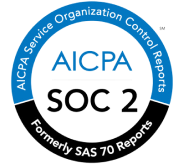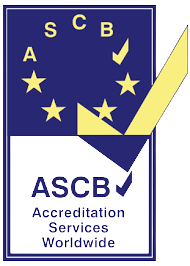Table of Content
Introduction
Employee relations in HR focus on creating a positive relationship between employers and employees. It plays a crucial and massive role in shaping the overall work environment, influencing job satisfaction, and enhancing employee productivity. In this article, get up close with the key aspects of employee relations, its importance in HR, and strategies to foster strong relations between employers and employees when using a smart HR tech like uKnowva.
Want to skip the content?

The Role of Employee Relations in HR
Employee relations act as the cornerstone of a well-functioning organisation. It encompasses various practices and policies that aim to create a harmonious work atmosphere, encourages open communication, and address any workplace issues effectively when using a social intranet platform – uKnowva offers it with its complete HRMS suite.
Let's explore the significant aspects of the role of employee relations in HR.
Understanding Employee Relations
Employee relations involve managing the dynamic interactions between employees and their employer, aiming to establish a positive and productive workplace. It involves handling conflicts, promoting fair treatment, and fostering a sense of belonging among the workforce.
The Significance of Employee Relations
Employee relations play a vital role in several areas within the organisation, including:
-
Boosting Employee Engagement
Strong employee relations contribute to higher levels of employee engagement. When employees feel valued, supported, and respected, they are more likely to be committed to their work and motivated to contribute their best efforts.
-
Improving Employee Retention
Positive employee relations reduce the likelihood of turnover. When employees have a sense of trust and loyalty towards the organisation, they are less likely to seek opportunities elsewhere.
-
Enhancing Organisational Reputation
A company known for its positive employee relations is likely to attract top talent. A reputation for valuing employees and providing a healthy work environment can make the organisation an employer of choice.
Building Strong Employee Relations
Building strong employee relations requires a strategic approach and the implementation of effective practices. Here are some essential strategies:
-
Effective Communication Channels
Establish transparent and open communication channels that encourage employees to express their concerns, ideas, and feedback. Regularly communicate company updates, policies, and changes to foster a sense of inclusivity.
-
Conflict Resolution Mechanisms
Implement fair and efficient conflict resolution mechanisms to address employee grievances promptly. Encouraging a culture of conflict resolution can prevent issues from escalating and negatively impacting the work environment.
-
Employee Recognition Programs
Recognise employees for their contributions. Employee recognition programs boost morale and create a positive work culture.
-
Work-Life Balance
Promote work-life balance. To do so, offer flexible work arrangements and support employees' personal well-being. A healthy work-life balance enhances job satisfaction and reduces burnout.
-
Training and Development
Invest in employee training and development opportunities by using the eLMS feature offered by uKnowva. Empowering employees with the skills they need to succeed enhances job satisfaction and demonstrates a commitment to their professional growth.
The Role of Employee Relations during Challenging Times
During challenging times, such as economic downturns or organisational changes, employee relations play an even more crucial role. Here's how it contributes to managing difficult situations:
-
Providing Support and Reassurance
Effective employee relations involve providing support and reassurance to employees during uncertain times. Transparent communication about the challenges the organisation is facing can help reduce anxiety and maintain trust.
-
Managing Layoffs and Restructuring
When layoffs or restructuring are necessary, handling the process with sensitivity and empathy is vital. Proper communication and assistance with job transitions can mitigate the negative impact on affected employees.
-
Nurturing Employee Resilience
Building resilient employees through supportive practices and a positive work environment can help the workforce adapt and thrive during challenging times.
Conclusion
Employee relations in HR are a key driver of organisational success. By nurturing positive relationships between employers and employees, companies can create a harmonious work environment, boost employee engagement, and enhance productivity.
By implementing effective communication, conflict resolution, and recognition strategies, employers can build strong employee relations that contribute to a thriving and resilient workforce.
Emphasising employee relations during challenging times is equally crucial in maintaining trust and supporting employees through uncertainty. Remember, investing in employee relations is investing in the success and growth of your organisation.
uKnowva HRMS aids HR professionals in crafting better relations at workplaces when they initiate the investment in the social intranet. It’s a completely collaborative platform where employees connect openly and share their views via polls, surveys, discussion forums, etc.
Frequently Asked Questions (FAQs)
Q: How do strong employee relations impact productivity?
Strong employee relations lead to increased productivity as employees feel motivated, valued, and engaged, resulting in a higher commitment to their work and the organisation.
Q: What are the consequences of poor employee relations?
Poor employee relations can lead to low morale, increased turnover, reduced productivity, and a negative impact on the company's reputation.
Q: How can employers improve employee relations?
Employers can improve employee relations through effective communication, conflict resolution, recognition programs, and promoting work-life balance.
Q: What role does employee relations play in organisational culture?
Employee relations heavily influence organisational culture by shaping how employees perceive the company, their colleagues, and their work environment.
Q: Can employee relations help in employee retention?
Yes, positive employee relations contribute to higher employee retention rates, as employees stay in an organisation that values and supports them.
Q: How can HR measure the effectiveness of employee relations initiatives?
HR can measure the effectiveness of employee relations initiatives through employee feedback, retention rates, productivity metrics, and employee satisfaction surveys. HR professionals use uKnowva HRMS to measure employee engagement and retention metrics and make informed decisions on time.












